Uva Ursi
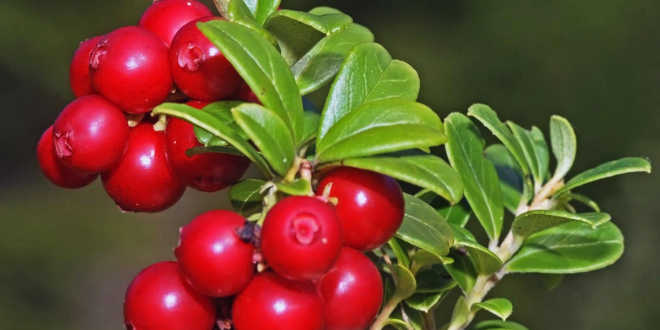
Uva Ursi, also known as bearberry, is a small, evergreen shrub that is prized for its medicinal properties, particularly in treating urinary tract infections (UTIs). The plant has thick, leathery leaves, small white or pink bell-shaped flowers, and red berries. The leaves are the part most commonly used in herbal medicine, valued for their astringent and antiseptic qualities.
1. Size:
- The shrub typically grows to a height of 6 to 12 inches (15 to 30 cm) and can spread up to 3 to 6 feet (0.9 to 1.8 meters) across the ground, forming dense mats.
2. Color:
- The leaves are dark green and glossy, with a leathery texture. The flowers are white to pale pink, and the berries are bright red.
3. Texture:
- The leaves are thick, leathery, and smooth to the touch. The berries are round and firm.
4. Fragrance:
- Uva Ursi leaves have a mild, earthy aroma when crushed, though the plant itself is not particularly fragrant.
5. Uses:
Uva Ursi is traditionally used to treat urinary tract infections, cystitis, and kidney infections. It acts as a natural diuretic and antiseptic, helping to cleanse the urinary tract and reduce inflammation.
The leaves are often brewed into a tea that is consumed to support urinary health. This tea is known for its bitter taste and is sometimes combined with other herbs to improve its flavor.
Uva Ursi is also available in tincture and supplement form, used for its antimicrobial properties to combat urinary pathogens.
In some traditional practices, Uva Ursi leaves are applied topically to aid in wound healing due to their astringent properties.
6. Habitat:
- Uva Ursi is native to the cooler climates of North America, Europe, and Asia. It thrives in well-drained, acidic soils and is commonly found in rocky, sandy areas, including pine forests and mountain slopes.
7. Cultural and Spiritual Significance:
Uva Ursi has been used for centuries by Native American tribes and European herbalists for its healing properties, particularly for urinary and kidney issues. It was also used in traditional medicine as a remedy for kidney stones and other urinary ailments.
Some cultures have used Uva Ursi in spiritual practices for cleansing and purification, particularly in rituals aimed at removing negative energy or illness from the body.
Spiritual Properties
Purification: Uva Ursi is believed to have purifying properties, both physically and spiritually. It is used in rituals and herbal practices to cleanse the body of toxins and negative energy.
Protection: The herb is thought to offer protection, particularly in the realm of physical health, by warding off infections and promoting overall wellness.
Medicinal Properties
Astringent: Uva Ursi leaves contain tannins, which have astringent properties that help reduce inflammation and tighten tissues, making them effective for treating wounds and skin conditions.
Antiseptic: The herb has natural antiseptic properties due to the presence of arbutin, a compound that converts to hydroquinone in the body, helping to fight infections in the urinary tract.
Diuretic: Uva Ursi acts as a mild diuretic, promoting urine production and helping to flush out the urinary tract, which can aid in the treatment of infections.
Allergic Reactions
Uva Ursi (Arctostaphylos uva-ursi) is generally considered safe when used in moderation and for short periods. However, prolonged or excessive use can be harmful, as it contains hydroquinone, which can be toxic to the liver and kidneys over time. Pregnant or breastfeeding women and children should avoid using Uva Ursi without medical supervision.
Allergic Reactions: Although Uva Ursi is generally well-tolerated, some individuals may experience allergic reactions, including skin rashes or gastrointestinal discomfort. Those with a known sensitivity to similar plants should use caution.
Photosensitivity: Prolonged use of Uva Ursi can increase sensitivity to sunlight, potentially leading to sunburn or skin irritation. It is advisable to limit sun exposure while using this herb.
Liver and Kidney Damage: Due to the hydroquinone content, long-term or excessive use of Uva Ursi can cause liver and kidney damage. It is recommended to use the herb only for short periods and under the guidance of a healthcare professional.
Gastrointestinal Upset: Ingesting large amounts of Uva Ursi may cause nausea, vomiting, or stomach cramps. It is best to use the herb in moderation.
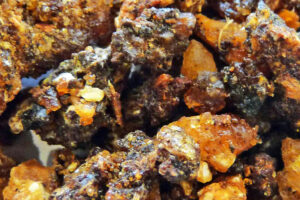
Opopanax Resin (Sweet Myrrh)
Opopanax Resin (Sweet Myrrh) Opopanax Resin (Sweet Myrrh) is an aromatic resin with a sweet, balsamic fragrance. It is derived from the Commiphora species, primarily
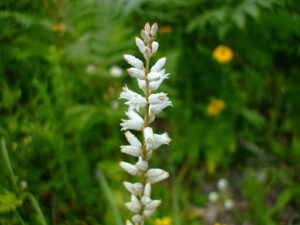
True Unicorn Root
True Unicorn Root The overall appearance of hibiscus flowers is bold and exotic, making them a popular choice for gardens, decorations, and floral arrangements. Their
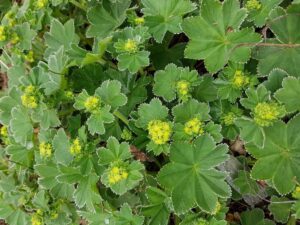
Lady’s Mantle
Lady's Mantle Lady's Mantle is a perennial herb known for its fan-shaped, serrated leaves and small yellow-green flowers. It has been traditionally used in herbal
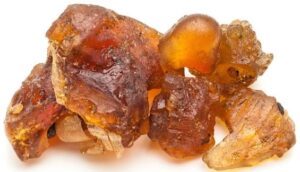
Guggul Gum Resin
Guggul Gum Resin Guggul gum resin, derived from the Commiphora mukul tree, has a distinctive appearance. It is typically found in irregular, small to medium-sized
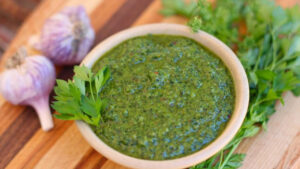
Healing Herbal Pesto
Healing Herbal Pesto This healing herbal pesto is packed with both flavor and spiritual healing properties. It’s a versatile sauce that can be used on
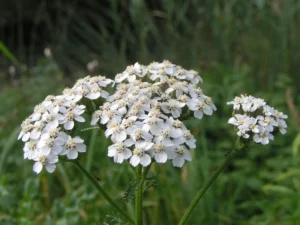
Yarrow Flower & Leaf
Yarrow Flower & Leaf Yarrow (Achillea millefolium) is a versatile herb known for its medicinal properties and distinctive appearance. The plant features delicate, feathery leaves